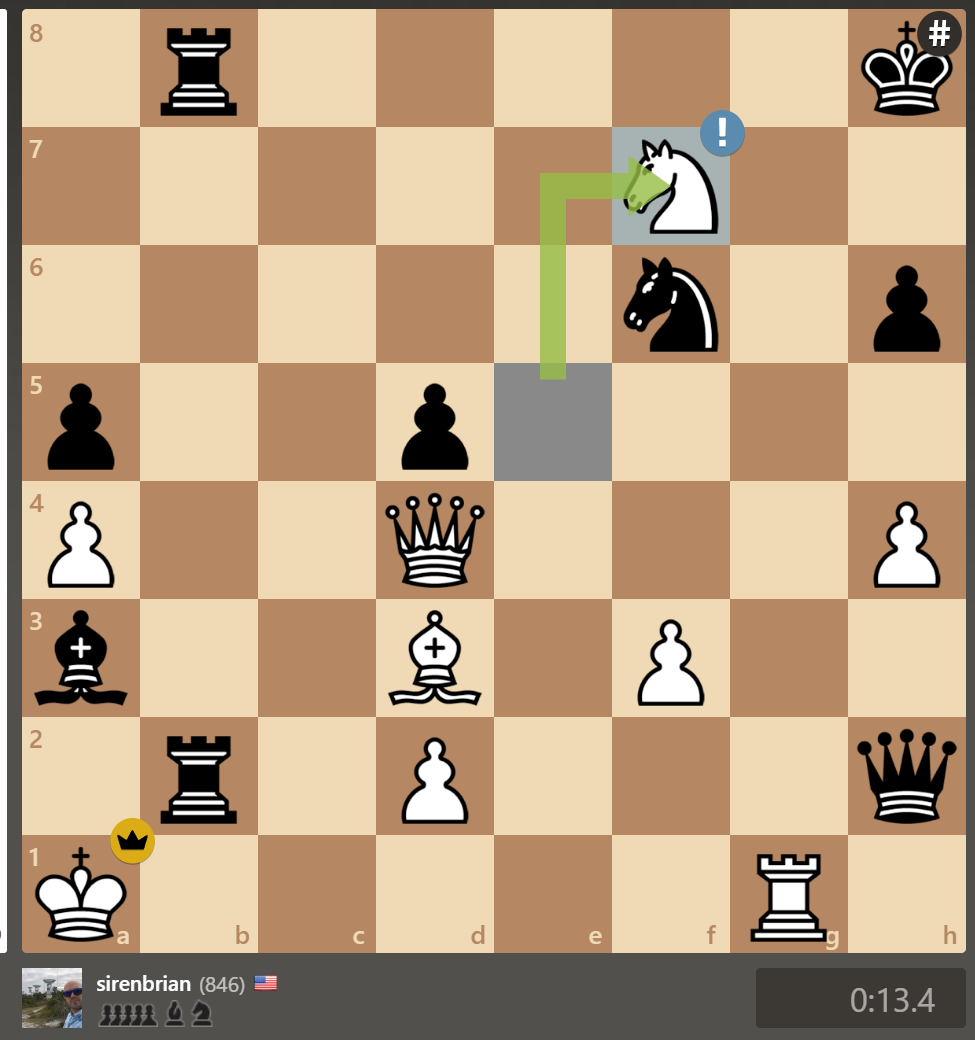Our chess club meets every Tuesday night and the last meeting of each month is an official tournament. Our scores are entered into the US Chess Federation database and it usually brings some very strong players out of the woodwork that are working on their ratings.
My first game was against a ten year old with a rating of 1950 (I'm about 1100). Our ratings meant he had a 99.7% chance of beating me . . . and he did, easily!
I want to post the third game I played that night because it encapsulates a lot about where I am as a chess player.
https://lichess.org/pzFgEQkY

Pawn to b5 was the key error in this game, allowing the devastating Nxc6
The game was fairly even until he allowed me to take his knight (free) AND fork both his rooks (also both unprotected)! It was a heck of a moment :) I remember seeing that square one move before, seeing that his b pawn was preventing me capturing and I thought "I know I shouldn't be playing hope chess, but I *really* hope he moves that pawn!" And then he did!" I looked at it closely to see if it was a trap, of course, but it wasn't :)
Interestingly computer analysis says I was winning until I pushed pawn to a3, but lucky for me that his response of b5 push swung threw the game back to me, and I maintained that strong lead to the end of the game. He allowed me to get his bishop cheaply too, which made the endgame easier.
I had played the same opponent in a crazy casual game the week before where I blundered (lost stupidly) two queens against him and he pulled a draw out of what was clearly a win for me, I knew I would have to be VERY careful to finish this game well. That memory is what made me move my knight and rook away from the queenside around move 44 - I could just "feel" I was going to lose a piece if I let his king get amongst my pieces!
Even the mate came as a surprise to me - I thought I was just checking him!
--
My victories usually come not because I engineered some amazing strategy and won, but rather that I saw an error my opponent made and I'm able to capitalize on it. I like to put it as: "I didn't win; my opponent lost."
Bryan Tillis, the club founder, said in response to this: "The lower the level, the more the evaluation of the game looks like a ping-pong match. It is not who blunders the most, it is who blunders last. I don't see players imposing their will on the position until 1600+. Before that rating range it is mostly blunder checking to get wins. I was once told by a strong GM that anyone can make it to USCF 2000 by simply not blundering; getting to master, though, requires a mass amount of loss and effort to learn a new skill set to work the position much like a boxer works in the ring."
So it turns out I'm pretty normal at this point :)










